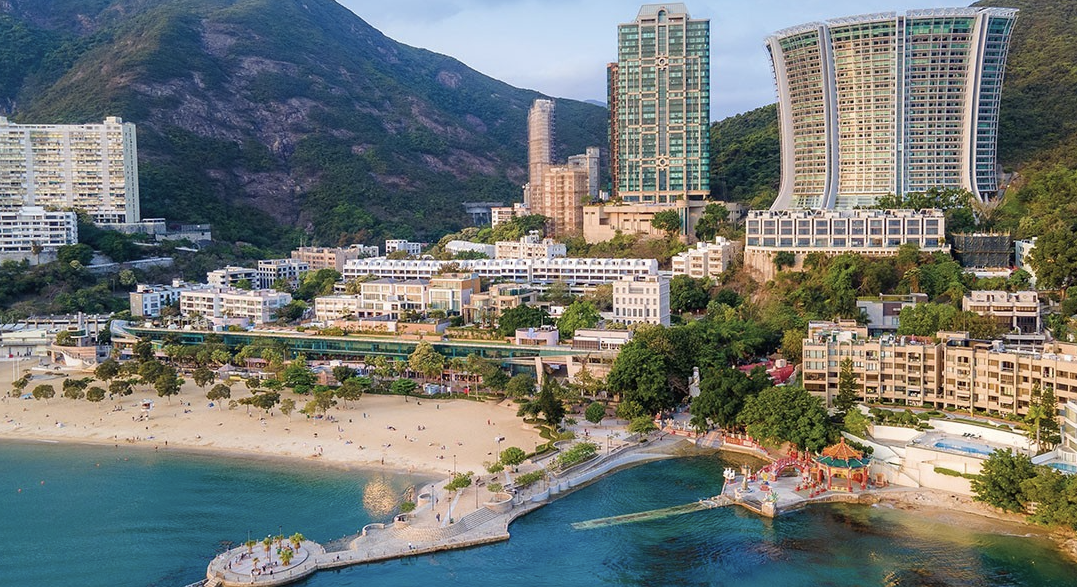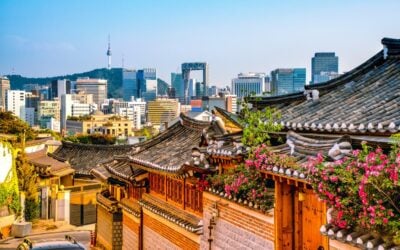Hong Kong, often dubbed the “Gateway to Asia,” has long been a magnet for global entrepreneurs, investors, and expats from across the world.
The city’s strategic location and business-friendly environment make it one of the most sought-after destinations for high-net-worth individuals seeking residency by investment.
With the recent reintroduction of the Capital Investment Entrant Scheme (CIES), Hong Kong has once again opened its doors to investors looking to secure residency in one of the world’s most dynamic financial hubs.
Indeed, Hong Kong’s CIES program offers a unique opportunity to establish a foothold in Asia, whether you’re an entrepreneur, investor, or simply someone seeking a tax-friendly base,
So, without further ado, let’s delve into the details of Hong Kong’s Residence by Investment program by exploring its benefits, eligibility criteria, investment requirements, and the full application process.
What’s the Hong Kong Residence by Investment Program?
The Hong Kong Residence by Investment program, officially known as the Capital Investment Entrant Scheme (CIES), is designed to attract high-net-worth individuals to invest in the region.
Originally launched back in 2003, the program was suspended in 2015 but reintroduced in 2024 with updated criteria and investment thresholds to align with Hong Kong’s evolving economic goals.
Under the new scheme, applicants must invest a minimum of HK$30 million (approximately US$3.87 million) in qualifying assets to gain temporary residency.
So, what do you get in return for such a substantial investment? The answer is not only the right to live in Hong Kong indefinitely, but also access to the territory’s tax advantages and strategic location.
Why Choose Hong Kong CIES?
Hong Kong has long been a global financial powerhouse, consistently ranking high on the Economic Freedom Index.
Its appeal lies in its unique blend of economic and political stability, world-class infrastructure, and proximity to other key Asian markets.
Here are some compelling reasons to consider Hong Kong for residency by investment:
1. Tax-Friendly Environment
Hong Kong operates on a territorial tax system, meaning only income sourced within its borders is subject to taxation.
There are no taxes on capital gains, dividends, or foreign-sourced income, making it an ideal base for investors and entrepreneurs looking to optimize their tax liabilities.
2. Strategic Location
Situated at the heart of Asia, Hong Kong serves as a gateway to China and other major Asian markets.
Its well-developed transportation infrastructure and proximity to economic hubs make it an attractive location for businesses and investors alike.
3. World-Class Financial Markets
Hong Kong is home to one of the world’s most robust stock exchanges and a thriving financial ecosystem.
Investors can access a wide range of financial instruments, from equities and bonds to funds and real estate investment trusts (REITs).
4. Global Connectivity
With a large expat community and a high number of English speakers, Hong Kong offers a cosmopolitan lifestyle that appeals to international residents.
Its cultural diversity and business-friendly environment make it a top choice for global citizens.
Key Features of Hong Kong CIES
To qualify for the program, applicants must invest at least HK$30 million in permissible assets.
This includes a mandatory HK$3 million investment in a government-managed portfolio focusing on projects that contribute to Hong Kong’s long-term economic growth.
Furthermore, must be at least 18 years of age and fall into one of the following categories to qualify for the New CIES Program:
- Foreign national
- Chinese national who has obtained permanent resident status in a foreign country
- Macao Special Administrative Region resident
- Chinese resident of Taiwan.

It’s crucial to remember that Hong Kong’s Residence by Investment program is not a path to any sort of citizenship.
The program offers flexibility in terms of investment options. Applicants can allocate their funds across:
- Equities listed on the Hong Kong Stock Exchange (SEHK)
- Debt securities issued or guaranteed by the Hong Kong Government or other authorized bodies
- Certificates of deposit with a minimum maturity of 12 months
- Subordinated debt issued by authorized institutions
- Eligible collective investment schemes, including SFC-authorized funds and REITs
- Non-residential real estate, subject to a cap of HK$10 million.
Applicants can include their spouse, civil partner, and children under 18 in their application, making it a family-friendly program.
It’s worth remembering that after seven years of continuous residence, applicants can then apply for permanent residency.
PR status allows individuals to live and work in Hong Kong indefinitely without maintaining their original investment.
Pros and Cons of the Program
Pros
- Tax Efficiency: Hong Kong’s tax regime is one of the most favorable in the world, particularly for high-net-worth individuals with foreign-sourced income.
- Economic Stability: Hong Kong’s robust economy and legal system provide a secure environment for investments.
- Strategic Access: Residency offers a gateway to China and other Asian markets, enhancing business opportunities.
- Expat Community: A large and active expat network makes integration easier for newcomers.
Cons
- High Cost of Living: Hong Kong ranks among the world’s most expensive cities, particularly in terms of housing and daily expenses.
- No Citizenship: The program does not offer a pathway to citizenship, as Hong Kong does not grant citizenship to foreigners.
- Cultural Adjustment: While Hong Kong is highly Westernized, cultural differences may still pose challenges for some individuals.
Application Process
The application process for the Hong Kong Residence by Investment program involves several stages:
1. Net Asset Assessment
Applicants must demonstrate ownership of at least HK$30 million in net assets for at least two years prior to the application.
This assessment is conducted by the New CIES Office and typically takes 1-2 months.
2. Visa Application
Once the net asset assessment is approved, applicants can apply for a visa to enter Hong Kong.
This visa is initially valid for two years and can be renewed indefinitely, provided the investment criteria are met.

Although the qualifications and application process seem to be taxing, the residency by investment program is still worth considering, especially for those looking to utilize Hong Kong’s tax policy in the long run.
3. Investment Completion
Within the two-year visa period, applicants must fulfill the investment requirements, including the mandatory HK$3 million government portfolio contribution.
Upon completion, they receive an investment confirmation certificate.
4. Portfolio Maintenance
To renew their visa, applicants must maintain their investment portfolio and provide annual proof of compliance.
Any changes in the value of the investment do not affect the residency status, but new acquisitions or disposals must be reported.
5. Permanent Residency
After seven years of continuous residence, applicants apply for permanent residency in Hong Kong.
This status grants more rights, such as the ability to vote in elections, and eliminates the need to maintain the original investment.
Alternatives to the Hong Kong Investor Program
If Hong Kong’s high investment threshold or other factors make it less appealing, several alternative programs in Asia may suit your needs:
Singapore Global Investor Program
Singapore offers permanent residency to investors who contribute to a local business or qualifying fund.
You’ll obtain Singapore permanent residence through its Global Investor Program by investing at least SGD$10 million (around US$7.5 million) in a Singaporean business or SGD$25 million (US$18.9 million) in a qualifying investment fund.
Similarly to Hong Kong, Singapore also operates a territorial tax system and boasts world-class infrastructure. The program is even more expensive though!
Malaysia My Second Home (MM2H)
Malaysia’s MM2H program allows foreigners to gain residency by depositing RM 150,000 into a local bank and purchasing property worth RM 600,000. The scheme has several tiers, and you’ll receive added benefits for investing larger sums.
This program is significantly more affordable but offers fewer tax benefits than Hong Kong. While Malaysia isn’t quite as developed as Hong Kong, it’s also growing at a faster pace.
United Arab Emirates Residency
The UAE offers residency to individuals who invest in property worth AED 750,000 (about US$200,000) or start a business.
While the UAE has no income tax, its new corporate tax rate of 9% may reduce its appeal.
Is Hong Kong Residence by Investment Right for You?
The Hong Kong Residence by Investment program is a compelling option for high-net-worth individuals seeking to establish a base in Asia.
Its combination of tax efficiency, economic stability, and access to global markets makes it one of the most attractive programs of its kind.
While the high investment threshold and cost of living in Hong Kong may deter some, the long-term benefits of residency in Hong Kong often outweigh these challenges.
As with any major financial or immigration decision, it’s crucial to consult with experts and carefully assess your options before proceeding.
For the right type of person though, this program isn’t just a residency – you’re also gaining local access to one of the world’s most vibrant economies.
FAQs: Hong Kong Residence by Investment
What Are the Requirements for Hong Kong CIES?
Applicants must invest at least HK$30 million in permissible assets. This includes a mandatory HK$3 million contribution to a government-managed portfolio supporting Hong Kong’s economic growth.
Other eligible investments include equities listed on the Hong Kong Stock Exchange, government-guaranteed debt securities, certificates of deposit, subordinated debt, SFC-authorized funds, REITs, and non-residential real estate (capped at HK$10 million).
Can Foreigners Get Citizenship in Hong Kong?
No, Hong Kong does not offer a pathway to citizenship for foreigners through its Residence by Investment program or other means. While the program allows individuals to gain temporary residency and eventually apply for permanent residency after seven years, Hong Kong does not grant citizenship to foreigners.
Does the Program Lead to Permanent Residence or Citizenship?
Hong Kong CIES does not offer a direct path to citizenship. However, after seven years of continuous residence, applicants can apply for permanent residency. This status allows individuals to live and work in Hong Kong indefinitely without maintaining their original investment.
Can Hong Kong Residents Travel to China?
Yes, Hong Kong residents can travel to mainland China. However, the process depends on their residency or citizenship status.
Hong Kong permanent residents who are Chinese citizens can apply for a Home Return Permit, which allows easier access to mainland China. Non-Chinese citizens residing in Hong Kong typically need to apply for a visa to enter China.
How do I Become a Permanent Resident in Hong Kong?
To become a permanent resident in Hong Kong, individuals must reside in the region continuously for seven years under an eligible visa, such as the one granted through the Residence by Investment program.
Once this requirement is met, applicants can apply for permanent residency, which allows them to live and work in Hong Kong indefinitely without needing to maintain their original investment.
Can Hong Kong Residents Travel to the US Without a Visa?
No, Hong Kong residents cannot travel to the United States without a visa. Hong Kong passport holders are required to apply for a visa to enter the US, as Hong Kong is not part of the Visa Waiver Program. However, the process for obtaining a US visa is relatively straightforward for Hong Kong residents.







